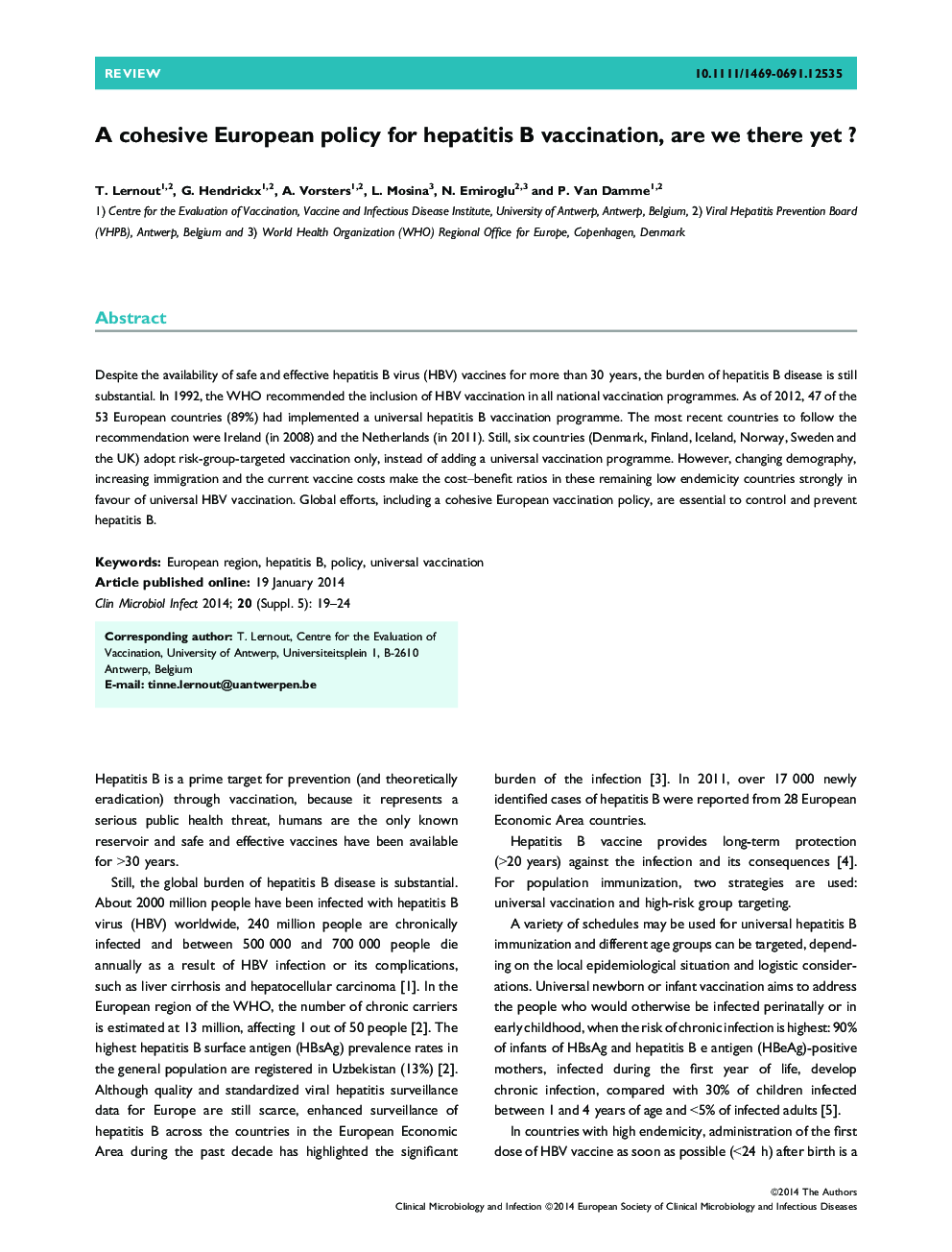| Article ID | Journal | Published Year | Pages | File Type |
|---|---|---|---|---|
| 3396688 | Clinical Microbiology and Infection | 2014 | 6 Pages |
Despite the availability of safe and effective hepatitis B virus (HBV) vaccines for more than 30 years, the burden of hepatitis B disease is still substantial. In 1992, the WHO recommended the inclusion of HBV vaccination in all national vaccination programmes. As of 2012, 47 of the 53 European countries (89%) had implemented a universal hepatitis B vaccination programme. The most recent countries to follow the recommendation were Ireland (in 2008) and the Netherlands (in 2011). Still, six countries (Denmark, Finland, Iceland, Norway, Sweden and the UK) adopt risk-group-targeted vaccination only, instead of adding a universal vaccination programme. However, changing demography, increasing immigration and the current vaccine costs make the cost–benefit ratios in these remaining low endemicity countries strongly in favour of universal HBV vaccination. Global efforts, including a cohesive European vaccination policy, are essential to control and prevent hepatitis B.
